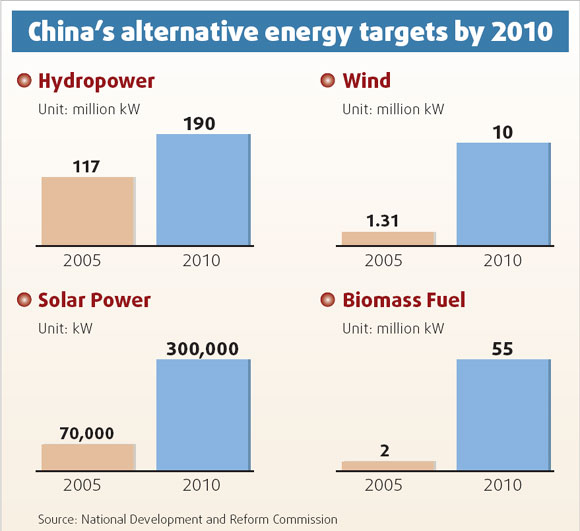The government is also pushing to promote international exchange and work with foreign counterparts to train high-level professionals in the sector.
Policies on energy will give priority to five areas - solar power, biomass fuels, wind power, hydrogen energy and natural gas utilization - and the government will provide additional funding for research projects and offer preferential tax rates for those involved in the development and use of renewable energy, the source said.
The latest push for clean energy comes amid a record high in global oil prices, which has surpassed $110 a barrel.
"From a business perspective, it's already cheaper if we turn to alternative energy," the source from NDRC said.
The International Energy Agency has said that it is cheaper to switch to alternative energy when the oil price goes above $70 a barrel.
Ma Kai, former minister of the NDRC, had said earlier that the country has been implementing energy-saving measures to realize its targeted energy consumption ceiling of 3 billion tons of coal equivalent by 2010.
Last year, the country consumed 2.65 billion tons of standard coal equivalent, up 7.8 percent from the year before, even as consumption growth slowed by 1.81 percent year-on-year.
Energy consumption per unit of GDP was 1.1663 tons of standard coal equivalent, down 3.27 percent from 2006. That decline was 1.94 percent faster than the year before.
Last year, the country saved a notable 89.77 million tons of standard coal equivalent in energy.
According to the country's 11th Five-Year Plan, energy consumption per unit of GDP is targeted to go down by 20 percent between 2005 and 2010, by improving resources, utilizing efficient technology, and saving energy.
"We are still faced with many challenges in meeting the ceiling target," Ma said. "Our development pace is too fast."

(China Daily March 19, 2008)